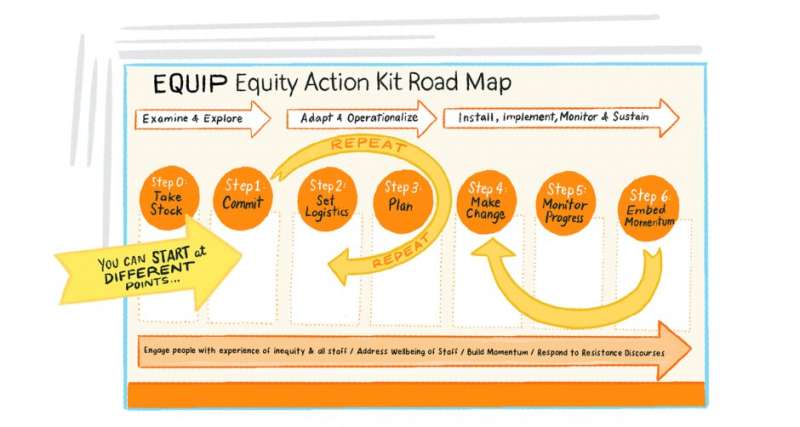
Stigma and discrimination associated with substance use, known as substance use stigma, contribute directly to significant harms and barriers to care. Due to widespread negative attitudes towards substance use issues, people are often treated in disrespectful or discriminatory ways in health care settings.
Now a team of researchers at UBC and Western University are offering a suite of tools and strategies to ensure that people who experience substance use stigma can receive better care in the future.
“Stigma and discrimination make it very hard for people to seek care, particularly if they’re Indigenous, or are assumed to have a history of substance use,” says Dr. Colleen Varcoe, principal investigator and professor emeritus of nursing at the University of British Columbia. “They expect that they’ll be judged, disrespected or denied care because they are assumed to be ‘faking it’ or to be looking for drugs.”
The new tools, strategies and resources, called the EQUIP Equity Action Kit, include:
Organizational planning tools and report card to help organizations assess themselves with respect to substance use health, as well as actions to address stigma and to reduce racism toward Indigenous people and other people who are targets of discrimination
Videos and tools that highlight the effects of substance use stigma and how to enact strategies to address it, including how to identify barriers to care, and how to change stigmatizing language
Self-directed e-learning modules on what equity-oriented health care means and how health care professionals can provide services in a trauma- and violence-informed, culturally safe way
“The action kit supports engaging with people with experiences of stigma and poor care, meaning that their voices are always heard and prioritized,” says project co-lead Dr. Nadine Wathen, a professor at the Arthur Labatt Family School of Nursing at Western University. “These tools support large-scale implementation efforts to catalyze organizational and system change and improve health and social services and health outcomes.”
The project is part of Equip Health Care, a key initiative of the EQUIP research program at UBC, Western and University of Northern British Columbia that is developing initiatives to improve health equity in health care and social service settings.
“We partnered with health and social service providers and people with lived experience to develop guidance, strategies and resources to improve pathways to care for people who experience substance use stigma and related types of discrimination. A key goal is to help organizations, staff and providers to deliver care that is non-judgmental, and that will encourage people to seek help when they need it—not avoid seeking help,” says project co-lead Dr. Annette Browne, a professor of nursing at UBC.
Project partners include Community Addictions Peer Support Association (CAPSA), a national organization working to ensure people have equitable access to services and supports when seeking care for their substance use health without stigma or discrimination.
Source: Read Full Article
